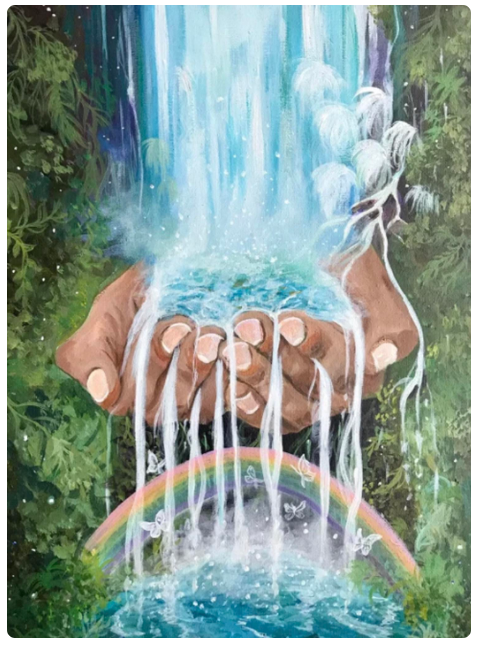Wilson Namuwoza’s Story
Wilson Namuwoza is the All Nations Kampala Hub Executive Leader. He just recently also joined the All Nations International Leadership Team. Stella and Wilson Namuwoza are celebrating 19 years of marriage on March 1, 2022. They understand each other very well; she is very supportive; she is mostly in the background, a hero that way. She likes hosting, looking after visitors, etc. She is Wilson’s biggest support. She serves at the All Nations Kampala Hub’s Church Planting Experience (CPx) and helps assist people when they are ill. She and Wilson work well together as a team. They have four boys, too.
Wilson’s Story:
Background
Before he knew Jesus as a young man, he would watch every movie he could. He would put up posters announcing the movies that were going to be playing, so the cinema let him enter free because he advertised for them.
He used to be spanked a lot by his mom. He performed poorly in class because he’d skip school and go see movies.
During that time, he also hung out and sniffed petrol with a group of kids. He was punished at home a lot and caned at school too. He was sad. One day his mom gave him money to buy groundnut sauce. He met a witch doctor at the entrance of the store, and the man said:
“I see what is bothering you.”
“Yes, I’m always getting beaten, and I’m sad,” Wilson answered.
So, he gave the money to the witch doctor, and the man cut him on both hands and gave him some itchy medicine and a stick. He told Wilson, “When you press this stick, you will understand everything.”
Wilson then went to school to take an exam; he was confident he would pass. But when he looked at the paper, he could not understand anything on it. He remembered to press the stick, but he still didn’t understand anything. He failed the exam.
Teachers at school would spank the students, one by one, who failed exams. Wilson had a lookalike friend, and people often mixed them up. The two of them would climb trees and steal precious jackfruit from neighbors; they were considered naughty boys.
When the teacher called his lookalike friend, his friend sat still and did not move. His teacher came to Wilson then; Wilson tried to say he was not the friend, but the teacher did not believe him. He caned him seven times.
When it came to Wilson’s name on the list, the teacher said, “Aren’t you Namuwoza?”
Wilson explained that the teacher had already caned him. The teacher did not believe him, and he got caned again.
He had given the money for the groundnut sauce to the witch doctor in the morning, so when he got home, his mom spanked him and threw something at him that left a scar.
Is there a God?
That Saturday, a group was out sharing the Gospel in Wilson’s neighborhood. They talked about Jesus and said, “He who does not have the Son is already condemned.” They came to Wilson’s group of boys and asked them if they believed there was a God.
Wilson never knew there was a God, so he answered no. But when he was alone, he thought about it; was it true?
He said: “God if you really exist, I want to pass my exam. The moment I pass, I’ll know you are true and real.”
The following year, Wilson stopped going to the movies and skipping class. Then he had his exam. He came out first not only in his school, but in his district. News reporters came, and people lifted him on their shoulders.
Kings College in Uganda is a prestigious high school, usually only for sons of kings and exceptionally high-scoring kids. And here he was, a boy who walked many kilometers without shoes from a rural area, number one in the district. They gave him a scholarship to go to King’s College, and he started studying alongside the college president’s son and others.
When he went to the school, he was the poorest student there. He had a metal suitcase, not a leather one like everyone else, and he stood out.
On August 23, 1986, at 8 p.m., he came to a point where he said, “I can’t do this. I don’t belong here.” He approached some Christians, and they led him to Jesus.
Most of the people who attended King’s College went to university – about 95 percent of them. Wilson shared that individuals have a good chance of being successful if they go to that college. He got to know God there and other kids who were wealthy. He is still in contact with many of his classmates, and he consults with them from time to time. They have been a big support. He went on to study economics at university.
Family Tragedy and Working before University
Before university, however, some other difficult things happened. It was not an easy life. He is the youngest of three kids, and his dad was a teacher. He didn’t see his dad often or get to spend time a lot of time with him. His father was with many different women and had many kids from those relationships. He would bring the kids home, and Wilson’s mom looked after all of them.
Because of all these relationships, his dad got AIDS, which was extremely tough; it’s an awful disease. A week before his dad died, however, he accepted Jesus. While his father was alive, the family lived in a tiny house altogether, and they were very happy. After they buried his dad, they were given a month to leave the house because it was a government-owned house; but there was nowhere to go. Wilson had 22 other kids to look after, as well as his mom, who was a housewife with no education.
He spent money for the funeral and then dumped the kids in the village. It is a hard life, with no electricity, etc. But there is free food in rural areas. You need money for food in the city. He wouldn’t leave Kampala.
His friends were well off and well connected. He would sleep at one of their places for four days and then go to another friend’s house. During the day, however, he would leave the house and walk around because he did not want their parents to know he didn’t have anything to do. As a result, he knows every area of Kampala like the back of his hand.
He thought his life had ended; there was nothing he could do except eat, sleep, and walk. While he was walking in the city, he saw someone selling newspapers. He thought to himself, “Hey, I have two hands, and he has two hands. I could do that.”
Most vendors are criminals, and you must be careful. He had to figure out how to sell newspapers. He asked the vendor and the vendor said he would take Wilson to the newspaper agent. The agent interviewed him, then said, “Okay, tomorrow you have to be at this place at 3 a.m., and you have to bring a letter from the chief of the area you are living in.”
Even though Wilson was 16 years old, he started to cry because he did not technically have a home, so he could not provide a letter like that. But the agent let him come anyway. The meeting spot was 7 kilometers (4.3 miles) from Kampala on foot. Wilson was excited.
At 1 a.m., he woke up and got ready. At night in the forest, you can easily mistake banana trees for people. There are night dancers out and about, too, so he was scared. But he had nothing to lose. He got through the dangerous areas and by 3 a.m. had arrived. The agent who had hired him controlled all of Kampala’s newspaper selling.
The agent would go to each vendor in line, ask how many papers they had taken the day before, how many they had sold, and he wrote it down. The vendors gave him the money and the papers they had not been able to sell. Then, he would give them the papers for that day. He did this with every single vendor. So, by 6 a.m. everyone was ready to start. It was not good if you didn't sell all your papers by 10 a.m.
The agent gave Wilson 20 papers the first day. He sold them to the vendors at two cents apiece, and the vendors sold them at three cents apiece. Generally, you could sell about 18 newspapers a day at most.
Wilson kept selling newspapers, but nothing was changing. One day he was walking the streets again and thinking that his life was over. But then he got an idea: he designed a form and went from office to office asking to be hired. After having no luck by 3:30 PM he thought:
“All the money I’ve saved is now gone and my life is over.” As he came back toward a tourist building, the Uganda House, he thought “Why can’t I go there and apply?” [More of this part of the story will be told at another time.]
Further Education and Life in Kampala
He was eventually able to go back to university, complete his master’s degree, and begin climbing the corporate ladder from newspaper selling. He also began serving many pastors in Kampala to see the city changed, but he was not seeing changes. He continued serving the local pastors. They encouraged him to start a church and use money to make sure he ran the church.
Wilson started praying for the city and for the pastors. And then, God told him to leave the bank [where he was working]. He thought, “How do I do that?” He had come from nothing, and here was no one to support him. “How could others depend on him when he had no job?” God did not say where he would go, but eventually, Wilson obeyed.
All Nations
Then he heard a man from Morocco teach about disciple-making movements (DMM). It was his first time hearing about making disciples. He talked to the man about his dilemma, and the man connected him to All Nations Cape Town. Wilson only owned a vehicle because it was the one thing the bank had not taken to pay back his loans; In Uganda, the bank is willing to give you lots of loans so you cannot leave. So, when he left, they took his pension to cover his loans.
When he got to the Church Planting Experience in Cape Town it was so exciting. Eventually, they asked for people who wanted to join the Cape Town Hub.
If he had joined the Cape Town Hub, he would have stayed in Cape Town for three years, raised support, and connected with people. But he had a different vision. He had left his family in Kampala to come do the Church Planting Experience.
He said, “No, I need to go back and make disciples at home.” He requested money to come back to Kampala, and then he, Brandon, Noah, and some others from Cape Town, trained a church he already had. They formed a team, but no one was comfortable sitting back and being trained, and they did not do it. God cannot put new wine in old wineskins.
So, Wilson told the church he was leaving. They said they couldn’t pay him anymore because he was not the pastor anymore. He had built up and invested in that church, and he felt hurt that they treated him like that.
First Church Planted
He started praying on the streets of Kampala and wondering what he should do. He heard an audible voice say, “Go there.” But when he stopped, he didn’t see anyone on that street. He thought he was losing his mind.
But on that street, there are huts where people do witchcraft. He realized God wanted him to go into one of those huts. He thought, “What will people think?” But once again, he had nothing to lose. He removed his shoes, came into the hut, and sat down near the door in case he needed to duck out quickly.
There was a witchdoctor inside, doing something with clothes, twirling beads around his head, shaking, and chanting. He slaughtered a goat and put blood on the people. He lifted the goat, and everyone else went out and the witch doctor sat down. He looked at Wilson, and he asked how he could help him.
Wilson said, “God sent me to you.”
The witchdoctor answered, “In this place?”
Then the witchdoctor started shouting, and Wilson thought it was a demon manifesting. But the witchdoctor was calling his wife to come.
They were the first two people Wilson discipled. He told them:
“Jesus loves you; no one loves like him. I heard a voice telling me to “’Go there.’”
They accepted Jesus. [In previous discipleship situations] Wilson would tell people to go to his church at this point. But because he had a conflict with his previous church, he couldn’t. So, he asked instead if he could come back and meet with them in the hut. That was his first church. He thought the witchcraft would stop, just like that, but it didn’t.
One time, the witchdoctor called his children to come and listen to Wilson’s words. Wilson told them the gospel, and the whole family accepted Jesus. It was the first time Wilson had seen something like this - Jesus saving someone in witchcraft.
In church, they are trained that if a witchdoctor accepts Jesus, to make them get rid of all their stuff. But he felt like he was just supposed to keep sharing. His initial reaction, however, was that he should not keep going to the hut, because witchcraft is not good.
Eventually, he did go to the witchdoctor and say, “You know, you can keep doing this – but I’m not coming anymore.” But this time, the witchdoctor asked for bibles.
Wilson didn’t want to go back, but he went that next Wednesday; he went late. He found the witchdoctor sitting in his usual spot with his wife and kids and the people who could come for witchcraft. But he found them all reading Matthew 7.
Church Planting Movements (CPM) from the Neglected
Before this, Wilson only went to “good people,” not witchdoctors or prostitutes. But God was telling him, “No, you go to those people.”
So, he started going to the ghettos with one who regularly visited the witchdoctor. That was how he met Ghost, who connected him to Hashim, who connected him to Big, etc. And that’s how the movement in the ghetto started.
There were prostitutes who came to shrines; that’s how they got connected to Juliet, who leads prostitute churches. Sindy from the Nubian people group came to those meetings, and she took the church planters to the Nubians from Sudan.
Big has gone to the Nubian mountains now to church plant. Wilson’s group connected the Nubians with refugees, and they started working with the Nubians.
The best way to church plant is to make disciples, but if the disciples are not discipled it’s a waste of time. The first thing Wilson and his team had to do was make disciples who make disciples who make disciples.
Focusing on Insider Leaders
These leaders are key in making churches. He tracks the leaders first, not the groups and this is a key point. It is simple, but many people don’t get it. It’s not about a group of people; it’s about leaders who are discipling other leaders.
Leaders must also be reproducing. A leader must make leaders. Without this, the support base of the movement can’t be sustained. He does not create experts, he just gets normal, local people who are ready and available and who can produce more leaders.
Many movements start upside down. Movements must create more movements. If we don’t spark that, it stales.
“I am reminded of your sincere faith, a faith that dwelt first in your grandmother Lois and your mother Eunice and now, I am sure, dwells in you as well.” 2 Tim 1:5
Paul says to Timothy: “The faith that was in your mother, and in your grandmother, I see it in you.” Out of that, many dynamics happened. Movement must come out of family context.
Making Use of Preexisting Networks
The people Wilson was and is connecting with, however, are not family members. They are special kinds of leaders who need to be chosen because of their different networks. So that’s why Paul was talking to Timothy about going from the family setting to other settings.
Wilson saw this happing in Uganda. People were not working with families but in the ghettos and with prostitutes. So, we must get specialized leaders [who come out of and] who understand those dynamics to spark movements in those settings.
Taking Risks
Wilson has taken risks; he has and often does call people to do the Church Planting Experience who are not yet believers, but who have been discipled for some time. They don’t come from religious backgrounds, and they implement what they have learned. Some come still Muslims, still prostitutes, still drug addicts. They discover Jesus in Church Planting Experience and 90% get baptized.
Then, they go plant churches. That’s how they’ve been able to grow to more than 4,000 churches. There are even more, but they haven’t started with the 4th generation yet because of COVID and other things. More groups are being formed daily. He couldn’t stop it if he wanted to. He can’t even direct it. He lets God be in control, and they pray daily to do what’s right.
“[A]nd what you have heard from me in the presence of many witnesses entrust to faithful men, who will be able to teach others also.” 2 Tim 2:2
Wilson does all points of this verse as he disciples. The disciples are all in teams – God encourages teams. They are same-generation teams. He’s lost leaders, and some people he thought would not last got stronger. And more leaders come.
The movement will still stand even if he’s not around, he is confident about that. The movement will go on without him. He empowers leaders, trusts them, and gives them assignments.
About the author: Wilson has a bachelor of arts degree in economics and a master of science degree in information technology systems from Kampala-based Makerere University. He is married to Stella and they have four children. He and his family reside in Kampala, Uganda. Wilson founded and leads All Nations’ most fruitful church planting movement and he also directs All Nations Kampala Hub. He recently accepted the role to become a member of the All Nations Leadership Team (ILT).
Get Connected & Let’s Grow Together!
We invite you! Here are some amazing resources you may find interesting including:
Our Founder, Floyd McClung, has 18 books and audio/video teachings that will be an encouragement to you as you press in to all Jesus has for you in your journey! Connect HERE to our founders area to be equipped!
Lessons from the Least, the Last, and the Lost, All Nations Weekly Devotion by Blake Staton, M.Div.
All Nations Pocket Guide to Church Planting by Dr. Pam Arlund (in many languages)
All Nations Storytelling Resource
Mission’s Edge, a monthly roundtable learning opportunities with ministry and missions leaders! Sign-up for any of these today and participate! Let’s grow together!
To participate or learn about our monthly global prayer for the neglected people around the world, sign-up HERE to receive a monthly video prayer invite. We meet on the last Thursday of each month at 8 am CST (US). We encourage everyone to join in as we pray that Jesus will be worshiped by all peoples of the earth — the least, the last, and the lost!











